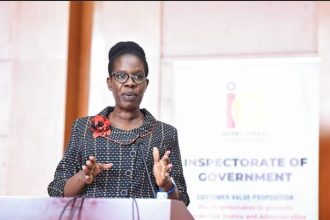(Kampala) – President Yoweri Museveni has pardoned 130 convicts as part of efforts to address humanitarian and public health issues in Uganda’s overcrowded prisons.
The decision, communicated by the Uganda Prisons Service on October 15, 2024, aligns with Article 121 of the Ugandan Constitution, which allows the president to grant pardons under certain circumstances. The offenses leading to the pardons primarily include theft and housebreaking, along with arson, possession of opium, assault, and obtaining money by false pretense. All 130 pardoned individuals have been released from prison.
Frank Baine Mayanja, the senior commissioner of prisons, stated that the pardons were granted based on humanitarian grounds and public health concerns, particularly in light of ongoing issues related to prison congestion.
The release of these prisoners comes at a time when Uganda’s correctional facilities are under scrutiny for their over-congested conditions. Mariam Wangadya, the chairperson of the Uganda Human Rights Commission (UHRC), praised the President’s decision, emphasizing its significance from both a human rights and humanitarian perspective.
Wangadya noted that many of those pardoned had served a substantial part of their sentences. She expressed hope that victims of the crimes would find satisfaction in the act of clemency, while also calling attention to the ongoing challenges of overcrowding in Uganda’s prisons.
“The country is grappling with over-congestion in prisons, and we hope that this will create enough space. We pray that this will not be a one-off. We hope this will be a regular activity,” she stated. The UHRC has frequently raised concerns about the poor conditions in detention facilities, where overcrowding increases the risk of health issues, including the spread of diseases such as tuberculosis and COVID-19.
Wangadya also highlighted the need for reforms in the criminal justice system regarding the treatment of specific groups, particularly civil debtors and vulnerable women. She suggested that alternatives to imprisonment, such as asset attachment or community service, should be considered for those unable to pay debts.
“Some of these crimes could have been punished without custodial punishment or sentences but through fines and community service,” she explained. She emphasized the importance of a more humane approach for women in prison, especially those arrested for minor offenses like street vending.
The President’s pardon is anticipated to alleviate some of the strain on Uganda’s correctional system, which has been criticized for its lack of resources and overcapacity. It also sheds light on the broader issues within the justice system, including the necessity for alternative measures to incarceration and improved support for vulnerable groups.
As the pardoned individuals return to their communities, Wangadya expressed hope for their successful reintegration into society. “We welcome the prerogative of the president, and we pray that they have learned and will now be law-abiding and seek forgiveness from their victims,” she said, emphasizing the importance of rehabilitation and reconciliation.
Other human rights advocates view this act of clemency as a potential catalyst for broader reforms in Uganda’s criminal justice system. Isaac Walukaga, a lawyer and partner at MMARKS Advocates, noted that the president, as the head of state, has the authority to exercise such powers, but emphasized the need for fair implementation.
“There must be a level playing field to ensure fairness in the process. The authorities should consider establishing a committee to oversee these decisions,” he remarked. While the aim of reducing prison congestion is commendable, concerns remain regarding the manner in which pardons are granted.
Charity Ahimbisibwe, a human rights activist, acknowledged the significance of the president’s actions but expressed caution regarding pardons for serious crimes. She pointed out that leniency in high-profile or violent offenses could send the wrong message and undermine efforts to protect vulnerable populations, particularly women and children.
Despite these concerns, Ahimbisibwe supported the pardoning of individuals convicted of minor crimes, arguing that no one should suffer unnecessarily due to harsh conditions. According to Frank Baine Mayanja, most of those pardoned were involved in petty offenses, primarily from prisons outside the capital.
“Only a small number, less than five, were from Luzira Prison, with additional releases from Sentema Prison in Wakiso District and Kauga Prison in Mukono District. At the time of the pardon, there were over 78,000 prisoners nationwide,” he noted.




















